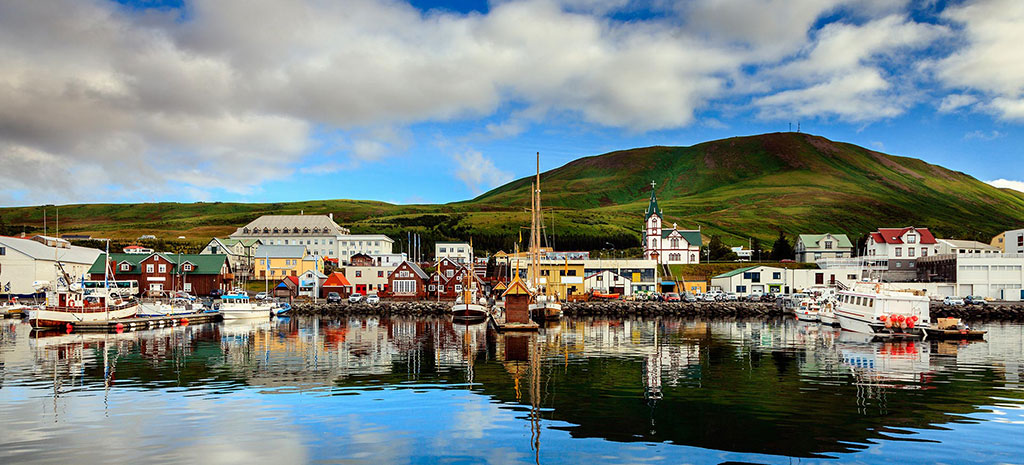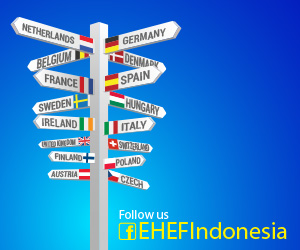
Study in Iceland
Last edited on 04 Mar 2026
Welcome to Iceland!
Located in the North Atlantic Ocean right close to the Arctic pole, the country has rather a dramatic nickname, ‘the land of fire and ice’, which refers to its impressive variety of natural features. Iceland is one of the world’s most active volcanic regions, while also having large areas covered in glaciers.
Iceland is a highly developed country with a world-class higher education system. Although Iceland is not a member state of the European Union, it signed the Schengen Agreement. If you plan to study in Iceland, you will benefit from its membership to the Schengen area as you will be able to freely move within Europe.
The country was hit hard by the 2008 global financial crisis, but has seen steady economic recovery since 2010. Recent years have also seen Iceland become increasingly popular as a tourist destination, with travelers enticed both by the stunning natural scenery and the cultural attractions of capital Reykjavík – celebrated for its colorful buildings, vibrant music scene and nightlife.
Education System
The Icelandic educational system is divided into four levels:
Pre-school level: up to 6 years of age
Compulsory school: primary and lower secondary school in a single structure, 6-16 years of age
Upper secondary school: 16-20 years of age
Higher educational: age 19/20 and older
Education in Iceland has traditionally been organised within the public sector, and there are very few private institutions in the school system. Almost all private schools receive public funding.
The Icelandic Parliament is legally and politically responsible for the educational system. It determines its basic objectives and administrative framework. All education comes under the jurisdiction of the Ministry of Education, Science and Culture, with the exception of a few specialised schools.
The Icelandic higher educational system dates back to the foundation of University of Iceland in 1911. The University of Iceland remains the principal institution of higher learning in Iceland, but over the last three decades, new institutions of higher education have emerged, and there are currently seven institutions of higher education operating in Iceland.
Student Cities in Iceland
Application, Fees and Visas in Iceland
University applications and fees in Iceland
Applications are submitted directly to each university, with requirements and deadlines varying between institutions.
Public universities do not charge tuition fees, but there is a ‘registration fee’. This varies between universities, but for an example the University of Iceland currently charges ISK60,000 (about US$470) per year. Private universities charge both tuition and registration fees, which vary depending on the course and institution. Fees are usually higher for students from outside the EU.
The University of Iceland advises students to allow about ISK125,540 (US$980) per month to cover accommodation and other living expenses.
Getting a visa for Iceland
Depending on your nationality and how long you intend to stay, it may not be necessary to get a visa for Iceland. However, those who intend to study in Iceland for more than three months will need to apply for a residence permit, via the Icelandic Directorate of Immigration. This can be applied for once the student has been officially granted a place at a university in Iceland. Applications take around 90 days to be processed, and students should apply in time to receive their permit before arrival in the country.
Healthcare in Iceland
After being resident in Iceland for six months, everyone automatically becomes a member of the national social insurance system, regardless of nationality. This means access to healthcare in Iceland at the same fixed rates paid by locals.
Before this six month point, students from EEA countries can access services at these same rates, by presenting a European Health Insurance Card (EHIC), as proof that they are entitled to healthcare in their own country.
Higher fees will be charged to those from outside the EEA, and students are advised to take out private insurance to cover this.
Languages in Iceland
The country’s official and main language is Icelandic. Other major languages in Iceland include Danish and English, which are both widely spoken and are both compulsory subjects at Icelandic schools.
At universities in Iceland, most undergraduate courses are taught in Icelandic. At the master’s and PhD levels, however, a considerable number of English-led programs are available, particularly at the University of Iceland, Reykjavík University and the University of Akureyri.
Fast fact
- Europe’s second largest island, after Great Britain
- Most sparsely populated country in Europe, with about three inhabitants per square kilometer
- Reykjavík is the world’s most northerly capital city
- Once ruled by Denmark, became fully independent in 1944
- Reykjavík means ‘smoky bay’ in Icelandic – referring to the city’s coastal location, and the steam that comes from the natural hot springs
- Currency is the króna (1 krona = 100 aurar)
- Home to more than 170 geothermal pools
- More than 11% of the country is covered by glaciers
- One volcanic eruption every five years, on average
- Popular Icelandic musicians include Björk, Sigur Rós and Of Monsters and Men





